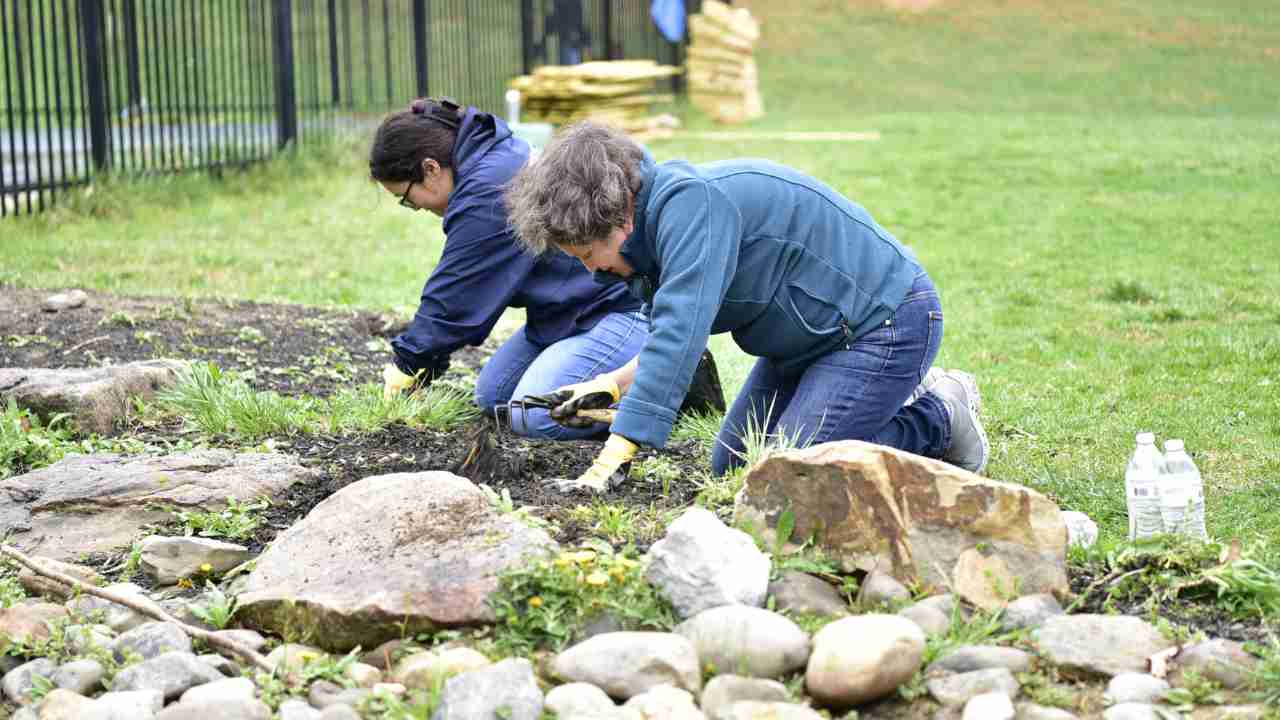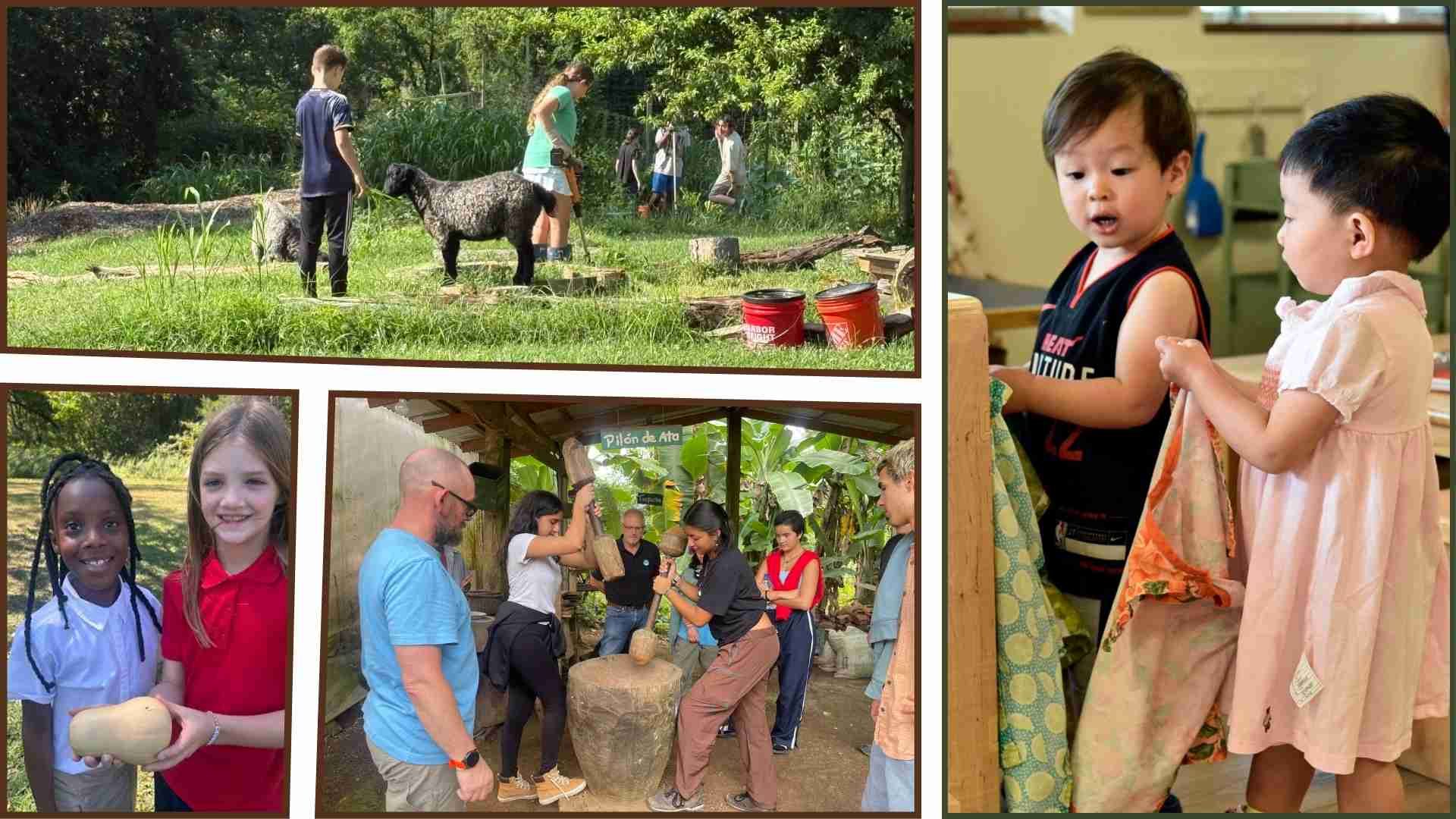
Cultivating Compassion: How Butler Montessori Teaches Service Through Community
Nov 10, 2025Service at Butler Montessori: A Way of Life
At Butler Montessori, service is not a checklist or a single event. It is a way of being. Whether a Primary child is helping a younger friend tie their shoe, an Elementary student is organizing a food drive, or a Fairhaven high schooler is presenting an environmental project to peers across the globe, each act of service reflects a shared value: that caring for others and for the world around us is part of who we are.
The Montessori Foundation of Service
In Montessori education, peace is not an abstract concept. It is built through connection and care. Dr. Maria Montessori believed that when children understand their own worth and the interdependence of all living things, they naturally want to contribute. Service grows from this same understanding.
At Butler Montessori, true service begins with awareness, empathy, and gratitude. It is nurtured in an environment that allows children to discover how their small, intentional actions can make a lasting difference.
As one Elementary Guide explained, “Service is not something we have to forcefully bring. The ability to be kind and to serve is just human tendencies. They are human potentials that already exist. And so it’s really about creating the environment in which children can tap into those aspects of themselves.”
Another Elementary Guide added, “A big part of service is to highlight the spontaneous work that’s happening, as well as the social and emotional work that’s happening in the classroom, where a child is being brave and being honest in a moment when it’s so scary for them to do that. They’re serving themselves and their development, and in doing so, they’re serving others around them too.”
Service Across the Levels
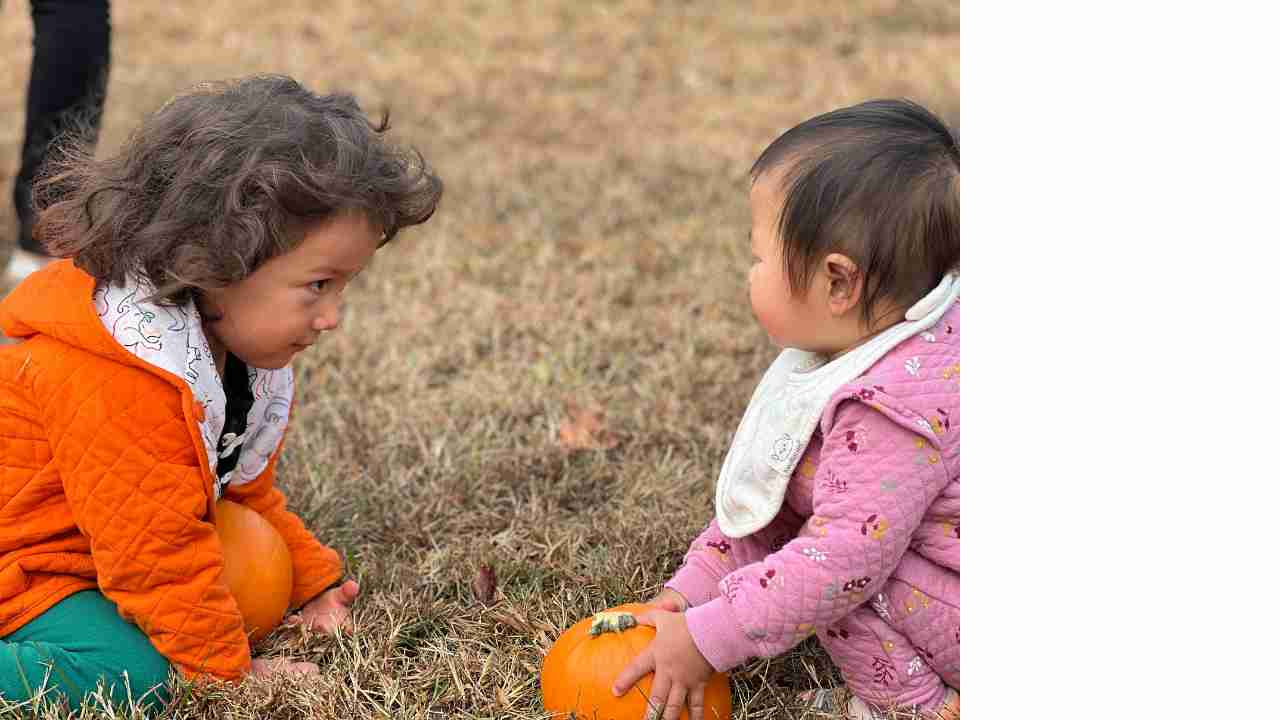
Nido and the Young Children’s Community (6 weeks–36 months)
Even the youngest children at Butler Montessori participate in service through simple acts of care. Babies and toddlers help set the table for lunch, water plants, and clean up small spills. When a toddler comforts a crying friend or patiently helps another put on shoes, they are experiencing their first lessons in community. Service begins here, not as a duty, but as a joyful discovery that “I can help.”
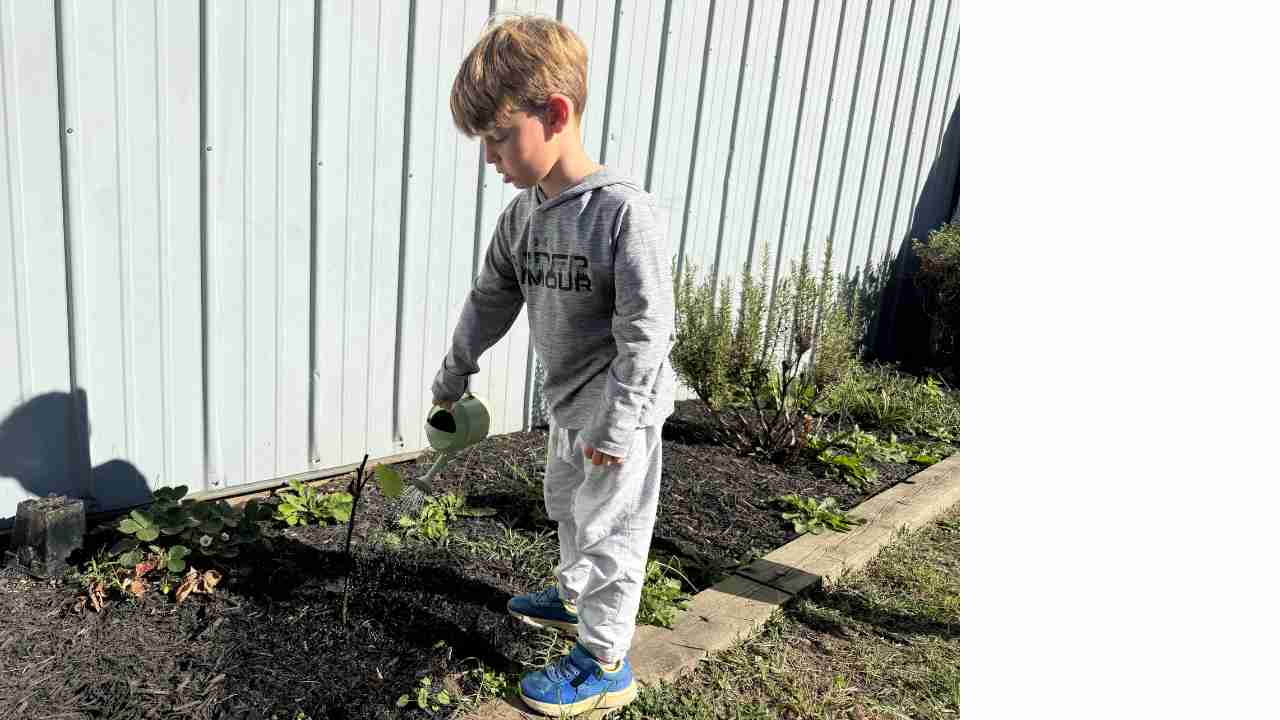
Primary (Ages 3–6)
In the Primary classrooms, service takes the form of Practical Life and Grace and Courtesy. Children practice kindness, share materials, and care for the classroom environment. They take pride in preparing snacks for classmates, tending the gardens, and helping maintain order and beauty. During the fall and winter seasons, they often extend that care beyond the classroom through food and donation drives, learning that generosity and gratitude can reach beyond their immediate community.
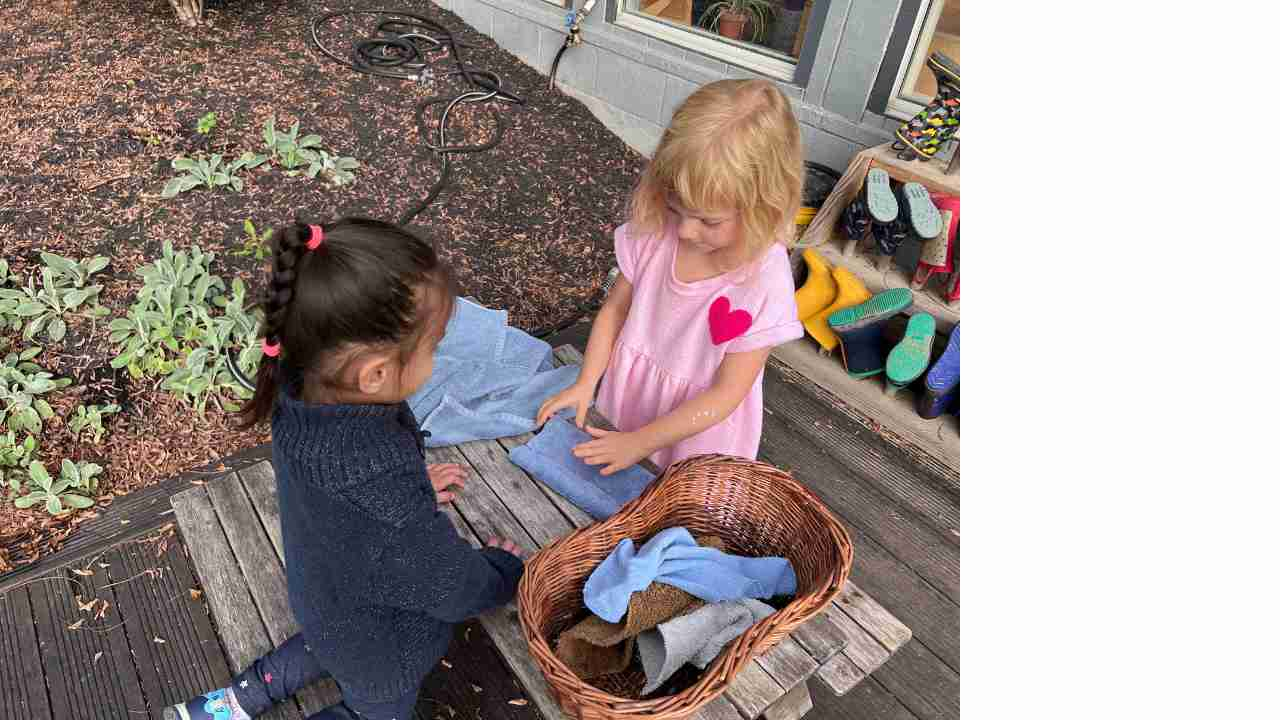
Elementary (Ages 6–12)
As children enter the Elementary years, their sense of justice and belonging deepens. They are naturally social and want to contribute meaningfully. Service becomes more collaborative and intentional.
Lower Elementary students might participate in campus-wide projects such as litter clean-ups, recycling initiatives, and collection drives. Older students begin to design and lead their own projects. Students have visited the Montgomery County Recycling Center to learn how everyday choices affect the environment. Afterward, they labeled recycling bins around campus and educated peers about sorting and sustainability.
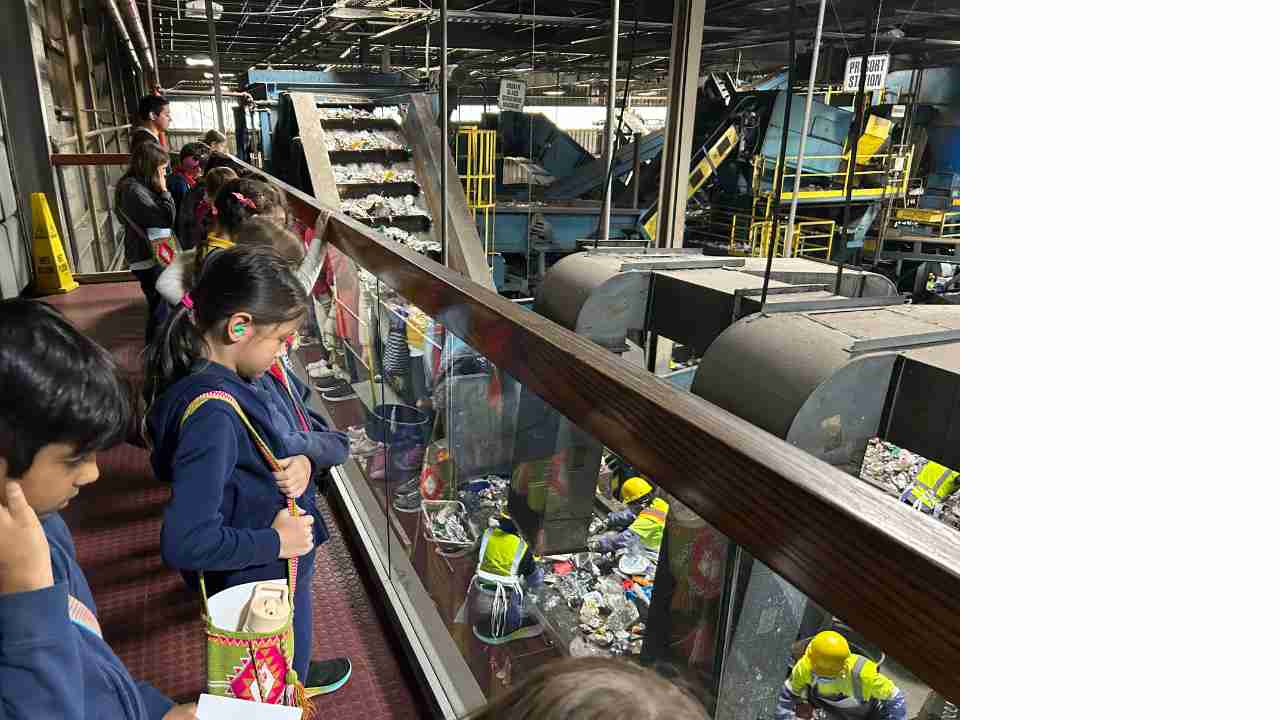
Other students spent time at the KPC Buddhist Temple in Poolesville, helping in the gardens and learning about volunteer efforts that support both people and the planet. These visits often form ongoing connections with local organizations, helping children see how service can extend beyond the classroom.
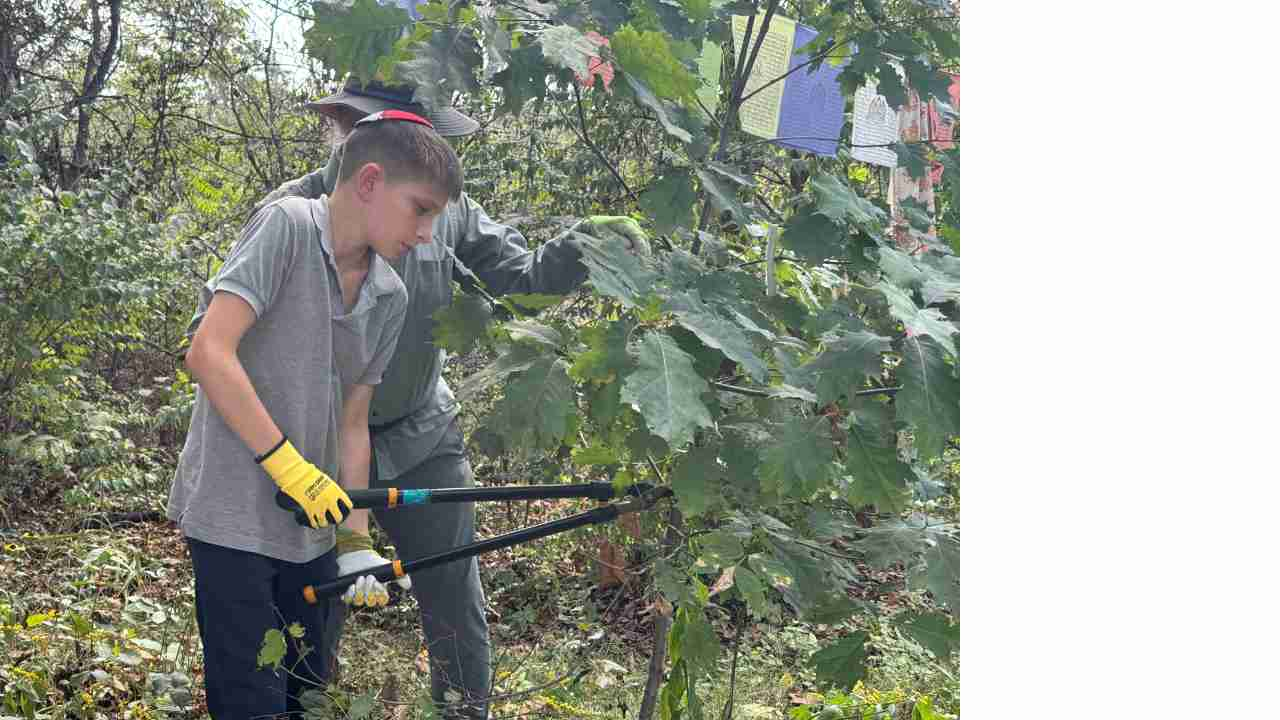
As one Guide reflected, “Service is inherent in the Elementary child because they are social and gregarious. They want to find their place in the community and in the broader world.”
Upper School: Intermediate and Fairhaven (Ages 12–18)
For our oldest students, service extends beyond campus into the larger community. Projects at this level are rooted in research, reflection, and personal passion.
Former Intermediate students, now Fairhaven students, formed STEP (Save the Earth Project) to raise awareness about environmental sustainability. They have presented their work at an international summit and are now organizing an event to connect student activists from around the world.
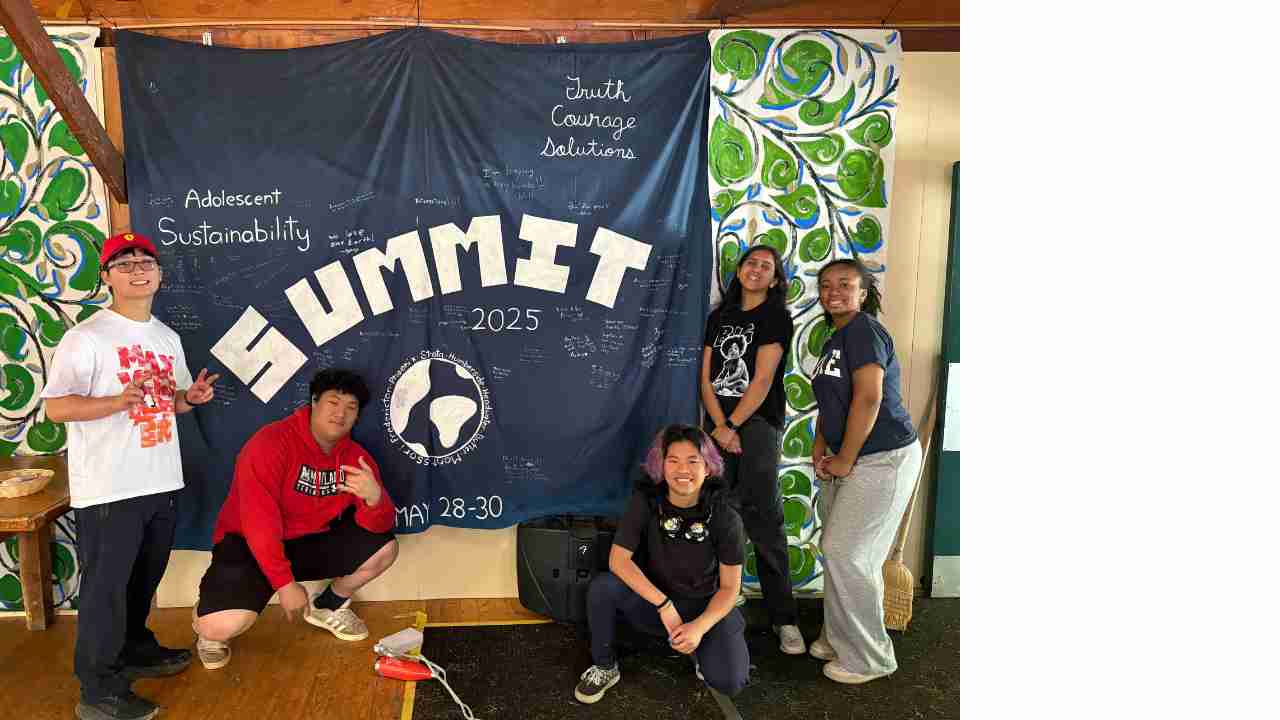
As Upper School Director of Education Emma Rodwin shared, “Many schools require a certain number of service hours, but we believe there’s no number that you can put on service. It should come from an authentic desire to contribute. That intrinsic motivation is the heart of Montessori education.”
The Role of Adults and Families
Service at Butler Montessori is modeled by everyone, from students to adults. Parents, Guides, and trustees volunteer in classrooms, maintain the gardens, join the Butler Parent Connection, and serve on the Board. Their involvement shows children that service is not an obligation but a privilege, and that giving back can be both joyful and sustaining.
As one parent put it, “There’s always a way to stay engaged, have fun, and give back to Butler and the wider community.”
Why Service Matters
Whether in the classroom, on campus, or in the community, these shared efforts point to something deeper about the purpose of service in Montessori education. Service in Montessori education is more than kindness. It is the practice of empathy, respect, and responsibility. It helps children see their place in the world and understand that their actions have an impact.
By engaging in meaningful service, children strengthen not only their connection to others but also their own sense of purpose. They learn that they can make a difference, that their voice matters, and that true happiness comes from contributing to something larger than themselves.
This vision of service extends far beyond the classroom. Montessori’s global community continues to carry forward her belief that education and compassion are deeply linked. AMI’s Outreach initiatives highlight this shared mission by connecting Montessori educators and students worldwide through acts of service, sustainability, and peace.
A Community Built on Care
From babies eating lunch together in Nido, to toddlers helping friends pour water, to high school students leading global sustainability projects, Butler Montessori students are learning that service is not about recognition but about connection.
Through daily acts of kindness, courage, and collaboration, our students are discovering that service is not something they do, it is something they are. Together, we are cultivating a community where compassion, empathy, and responsibility are lived every day. In this way, Butler Montessori carries forward Dr. Montessori’s vision of peace through education, one thoughtful act of service at a time.
By Kelly Troung, Lower School Director of Education

